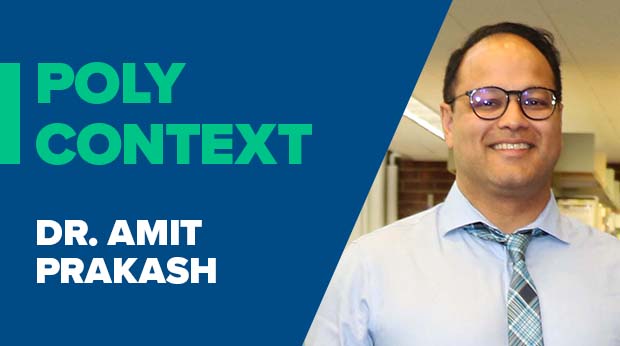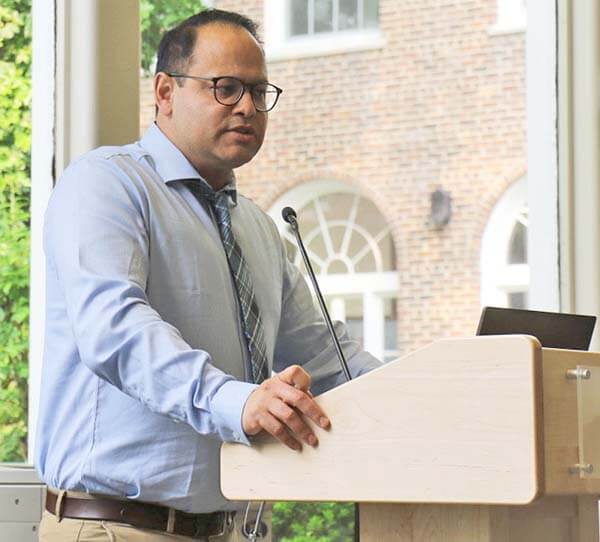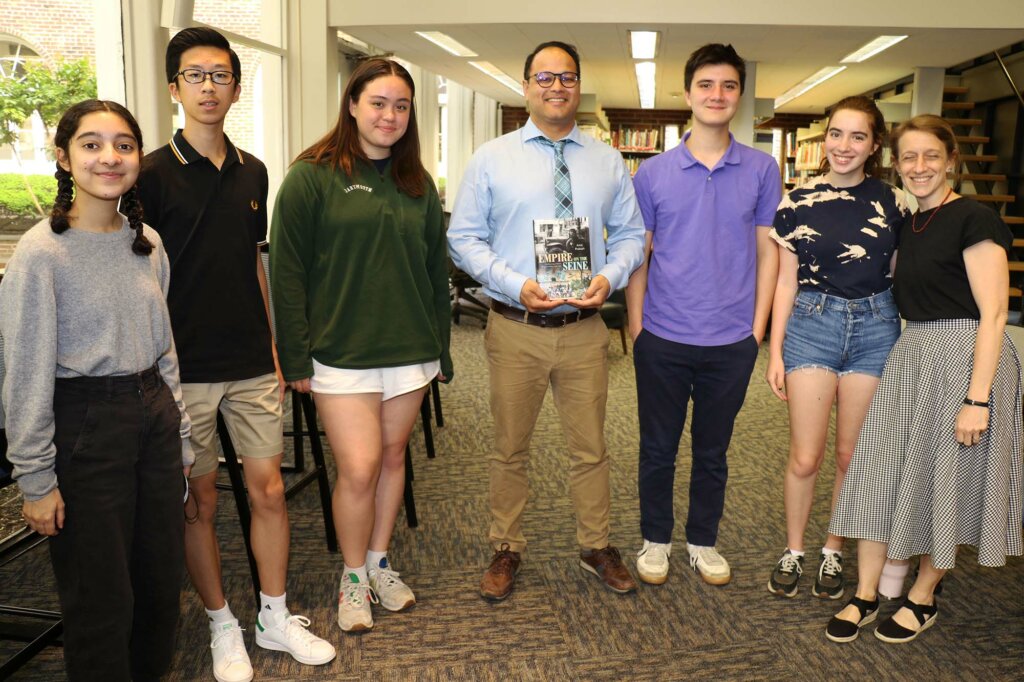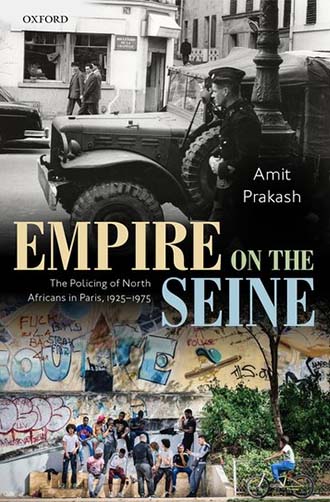News
PolyContext: Historian Dr. Amit Prakash

How does a question turn into a book?
Poly welcomed back Dr. Amit Prakash, our latest PolyContext speaker, who chronicled the research that resulted in his recently published book Empire on the Seine: The Policing of North Africans in Paris, 1925-1975.
Before the PolyContext presentation, Dr. Prakash met with members of the History Club, several of whom have won New York City and state honors for their own history research.
PolyContext
History Department Chair Maggie Moslander provided some background to PolyContext, a speaker series that was introduced in 2018. Michal Hershkovitz P’16, ’18, Assistant Head of School, Academics, introduced Dr. Prakash, who she described as a “gifted scholar.” She noted that besides teaching at Poly from 2013-16, Dr. Prakash has taught at Columbia, Bryn Mawr, and Trinity, as well as co-hosting a podcast with his brother-in-law, “No Politics at the Dinner Table.”
Curiosity Drives the Quest to Understand
Dr. Prakash began his talk, “How a Question Turns into a Book,” by saying that research is “organized curiosity,” a “bee in your bonnet… you need to follow.”
During his junior year at Oberlin College, he said, he found himself in Strasbourg, France, a major area of Turkish migrants. He said, “Everyone in Alsace assumed I was Algerian,” which he is not. He quickly saw that the Algerian was seen very differently in France. “Every society produces its others,” he said. “Nationalism creates an in group and out group right away.” Ironically, in France, “race is banned from being a category” of identity.
History of Policing of Algerians in France

In researching the policing of Algerians in Paris, Dr. Prakash spent a year in the French police archives, although he noted that today access to these records would no longer be open. He described a North African Brigade, which policed predominantly North African neighborhoods in Paris. Over time the name of this contingent changed, such as to the Night Security Brigade, but its purpose did not. He traced this policing over 50 years through anti-Semitism, Vichy France, colonialism, and post-colonialism, and connected policing with surveillance.
Dr. Prakash also discussed connections and comparisons to the history of policing in the United States, noting that prior to the mid-nineteenth century there were no “police” in New York City.
Dr. Prakash made a very interesting point about the role of history when he quoted from the work of historian Marc Raeff, The Well-Ordered Police State, 1975 “…[T]he past is much more tenacious than public opinion imagines it to be. Little of the past is ever fully lost, though its dynamic role may change and its forms be transmuted.”
Panel of Young Historians
History Club members and the audience had questions for Dr. Prakash. Afterward the students shared their impressions of the PolyContext talk and their earlier conversation with Dr. Prakash.
“During his presentation,” said William Ling-Regan ’24, “as well as the conversation we had with him in History Club, Dr. Prakash talked about how he connects his historical research with other disciplines. I’ve tried to do this in my work for History Club, so I really appreciated his thoughts on how his own work intersects with sociology, police and military studies, and even architecture, as they provided inspiration for how to connect history to my other interests.”
“I found it interesting how closely Dr. Prakash related policing of North Africans in Paris to policing in the United States,” Marisa Triola ’24 said. “When he explained these connections, I felt that I not only learned about the policing of North Africans in Paris, a topic which I previously knew little about, but I also gained insight into policing in the United States.”
“I found his analysis of the racial aspects of the policing of North Africans in Paris to be particularly interesting,” Eason Yao ’25 said. “Despite France’s reluctance to officially recognize race as a category, the policing of North Africans was highly racialized. Not only were Algerians treated much worse than the general population, even those who looked Algerian were often asked for their papers, revealing the hypocrisy of France’s policy.”
“I was really inspired by how he turned something as small as a visit to Paris into a research paper and eventually a book,” said Yao. “It gave me the belief that quality research can stem from personal interests or experiences. In the future, I hope to connect my historical research to my own experiences and the current world.”
Ling-Regan added, “I was most surprised and interested by the link Dr. Prakash drew between policing, enforcement of social order, and postcolonialism. He talked about how policing can replicate the conditions of colonization, both within the colonies and within the imperial country, which I had never thought of before. His talk helped me to see connections between the history he wrote about and my history classes at Poly, from learning about postcolonialism in Postcolonial Southeast Asia to learning about state power and social order in Protestant Reformation and Democracy and Conflict.”





